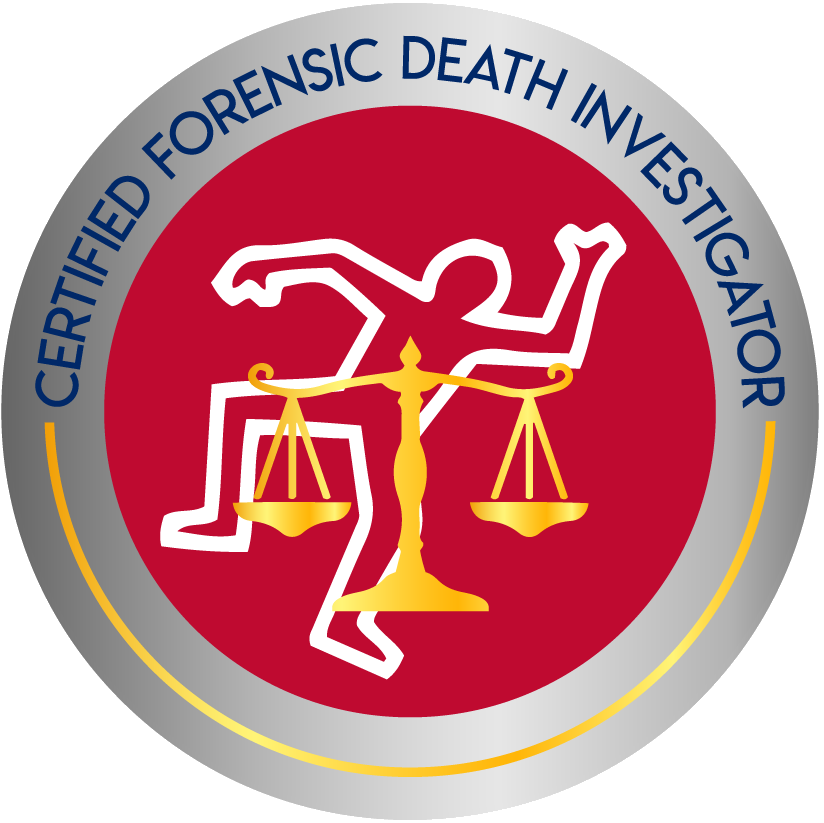
A ‘parallel’ investigation is a private investigation concurrent to an official investigation – this may be civil or criminal, and may involve motor vehicle collisions, missing persons, serious bodily injury and death – just about any type of investigation.
Q - I am looking for a retired homicide investigator in to run a parallel investigation to a current law enforcement investigation into a death. The client suspects it is a homicide but law enforcement may not be agreeing with that assessment.
A - Parallel doesn't work. With an open case there is too much unknown information and evidence. Also putting the cart before the horse - first see if they determine homicide or other (just because client suspects something doesn't make it so, or that law enforcement won't find what they suspect). Having done hundreds of family questioned deaths – it is best to wait and see what the official findings are, then get their evidence to know what to work with. Also, if it's homicide a parallel investigation could taint a successful prosecution.
Why? In July 2015 Karen wrote an article addressing this and other related client issues – “Investigating Without Playing into Drama”…
As investigators we are surrounded by different types of drama. It might be cheating drama, murder drama, suicide drama, trial drama; insurance fraud drama and the list could go on and on. You, as an investigator understand the picture. What we, as level headed, fact finding, responsible investigators should strive for, is to down play the drama of clients and never create or feed into the drama. There isn’t much to watch on television now except drama filled reality shows, to include judges, investigators, police officers and just about any topic you want to name. Google reality TV and you will be provided with numerous websites for your viewing pleasure.
-- Continued at www.deathcasereview.com/afi-llc-blog/investigating-without-playing-into-drama
There are times a concurrent, or parallel, investigation is warranted – suspected civil rights violations is one common example. However, those times and reasons are rare. Most often the request is because there is a strong belief 1) the decedent would not cause themselves harm; and 2) the decedent’s significant other would. Our process is concerned with two things: 1) determining the Manner of Death by the evidence; and 2) a person is not wrongfully charged or convicted.
Let’s talk about the issues with the parallel investigations, and general family questioned death investigations. First, we are very passionate about helping families find answers to the traumatic deaths of relatives – often parents losing adult children to suicide. No parent should bury a child, at any age. We strive to find these answers, and no matter what the evidence tells, answer the family’s questions and help them pursue any course of action the evidence supports.
Conducting a parallel investigation itself may not be a bad thing, and may be necessary. For example, a motor vehicle collision is very common. If reported by the injured party to an attorney, the attorney will immediately have their investigator begin to gather the facts and document the scene, and obtain all official records, reports, and photographs. If the official investigation is active, or filed by the prosecution, the access to the official investigation will be limited; this does not prevent an independent investigation. At times, working with consent of the prosecution, some information may be disclosed for the purposes of determining liability in the civil litigation. It is likely the official investigation and any adjudication will be completed before the civil litigation has been filed, which will open up the official records, reports, and photographs (and videos). Missing persons, which is not an area our agency specializes, will be concurrent to the official investigations, and often in cooperation. If the official investigation closes without finding the missing person, the private investigation may continue. In both of these types of cases, and many others, there may be limited access to official investigation information. This access will be limited to prevent jeopardizing the official investigation, and also any arrest and prosecution. Serious bodily injury investigations include motor vehicle collisions, and may missing persons, and these may also become death investigations. The parameters are the same – except the death may further limit available information, and any independent investigation.
This article is more specifically about a family questioned death – or equivocal death investigation – involving their loved one, and in which they suspect homicide vs. most commonly a suicide or sometimes an accident.
The loss of a loved one cannot be comprehended by those not part of the loss, and even then, each is different. One cannot know the loss, grief and pain. To understand they are experiencing these range of emotions is possible. These may change over days, weeks, months and years – and they never go away. Answers and closure is important, and may be delayed due to the nature of the death, and particularly if any suspected criminality is involved. We are often contacted immediately, within weeks, of a death by a family looking for answers. There are several reasons – the official investigation is taking too long, which may be true or perceived; there is a lack of communication from the official investigation, which is too often; and this may include insufficient communication. There are no right or wrong answers to these concerns, and we will explain to families what may be involved in the official investigation. In fact, it is why we wrote a short book, “A Survivors' Guide to Understanding Death Investigations” at www.UnderstandingDeathInvestigations.com. This is not about conducting any investigation - it is a short book about the process of the official investigation, and is intended only to answer these questions and provide a better understanding.
Are parallel investigations in questioned deaths recommended? No. We are asked this frequently, by families and other investigators. The purpose is commendable – to have answers and closure. However, there are numerous reasons one is not recommended, and reality, possible. These include: 1) the official investigation may conclude with the answers and closures for the family; 2) the important evidence of records, reports, and photographs will not be available until the case is closed and, if charges, adjudicated; and 3) any independent investigation may inadvertently jeopardize potential charges and adjudication – including wrongful accusations, arrest, and conviction. Let’s look at each of these, and all are equally important.
The Official Investigation May Conclude with the Answers and Closures for the Family
This concern often begins with conversations and communications in which law enforcement responded to an ‘apparent suicide’ or tells the family indications are suicide – and this before any autopsy or detailed investigation is started. We understand this is concerning. Most often these are misused words and phrases in reports. In our work with law enforcement, including coroner / medical examiner offices, we strongly encourage the same responses we were trained with – instead of responding to an ‘apparent suicide’ it is more accurate to respond to an ‘unattended’ or ‘suspicious’ or ‘unknown’ death scene or reported incident. Instead of ‘indications’ of any Manner of Death (Natural, Accident, Suicide, or Homicide) communicate these are unknown – Undetermined – until all investigations are complete. These will include any law enforcement agencies, coroner / medical examiner offices, and ancillary agencies (i.e. arson investigation). Too often we have heard other investigators, private and law enforcement, say the family needs answers and they are just telling them what is obvious or known. This is far from the truth – nothing is known until concluded; and even then, may still leave unanswered and other questions.
The Important Evidence of Records, Reports, and Photographs Will Not Be Available Until the Case is Closed and, If Charges, Adjudicated
We are often asked if we can look at a death certificate or autopsy report, or a photograph or two, to determine what did and did not happen, if a death is as reported and certified. No, we cannot – and no one should. To do so without all the other evidence is a disservice to the family, defendant, or any person associated with the death. Our analogy is reading an autopsy report without the underlying evidence is the same as reading a media story without knowing their source information. How often is a media story first reported and later, maybe, corrected? Not often, or at least not in the same manner as the headlines used to capture the event. We cannot be part of this. Unfortunately, not all records, reports, and photographs are available after the official investigation is concluded. This may be by statute or policy of closed records, these were not utilized as part of the investigation, maybe there was no autopsy, etc. In these cases we do our best to determine the competency of the official investigation, the official findings, and any answers, conflicts, or concerns which were concluded and determined.
Any Independent Investigation May Inadvertently Jeopardize Potential Charges and Adjudication – Including Wrongful Accusations, Arrest, and Conviction
Just as a family does not want the suspicious death of a loved one to go unanswered criminally, the same balance applies to making sure wrongful accusations don’t lead to wrongful convictions. At a time of loss emotions are high and varied from grief to anger. If there are any interrelationship issued of a lost loved one to their significant other, or if there are intrarelationship issues with parents and family members, there will be suspicions and accusations. Most often we see a death ruled a suicide, then a significant other ‘acting suspicious’ or the family is told the death is ‘obviously’ suspicious and not a suicide. There is often not facts or evidence in support, and families will point to circumstances, and even rumors – they ‘heard’ about this or that, or the reactions of others were not appropriate, or they acted suspicious, etc. Unfortunately, it is very difficult to let the facts and evidence provide the answers. We have an obligation to prevent unfounded accusations and wrongful convictions before they happen, in the just the same obligation as we have to provide answers by the same facts and evidence to the families. We have worked with prosecutors and law enforcement on both open and closed cases. These have been at the request of families, and also to take the investigation out of the official capacity for an independent review and analysis. We report only what the facts and evidence answers – nothing else, and no matter what these are. As legal investigators, we most often work with plaintiff civil litigation and criminal defense. In doing so we have these perspectives – and the very same criteria, process, and obligations to our clients. We have accepted active official investigations for families; however, our experience has been varied - from still waiting months for responses to disclosure requests, to flat denial of requests. At no time has being involved representing the family during the official investigation been productive; and it has most often been unproductive.
One of the most damaging and recurring statements to families are those in which a certainty is given, when there is none. Specifically, a family is told “This is definitely a homicide, because…” or “This is definitely not a suicide, because…” and the ‘because’ people do not kill themselves in such manner – therefore, it has to be a homicide and cannot be a suicide. These statements from official investigations, private investigators and attorneys, and caring family - more than anything already questioned from the official investigation - will do more irreversible damage than can be undone. Not only do these leave more questions, they cause more pain and may lead to others being harmed in retaliation or wrongfully charged, and worse, convicted. It is best to learn and experience these investigative processes, or refer them to an expert. These are some of the very reasons we have developed related courses, certificate, and certification courses at www.InvestigativeCourses.com.
The purpose of this process is the same as the medical professionals Hippocratic Oath – to first do no harm. We are tasked with, “To the living we owe respect, but to the dead we owe only the truth. - Voltaire.” and from our friend and former Coroner in WY, now passed, Paul Zamora, “Be Their Voice”. These are our purpose and passion. We provide expert medicolegal consultation, review and analysis to provide our findings and opinion. This process is our motto, “Quaero Indicium - To Find The Evidence”. We further this by making appropriate recommendations. This may include further investigation, consideration of unreported or misreported evidence, and perhaps returning to the official investigation with our findings.
The loss of a loved one cannot be known or understood by others. The need for closure and answers, though known, also cannot be understood. The desire to bring comfort, closure and answers is known and understood. It is important to not let the emotions to bring comfort and closure overcome the importance of facts and evidence in bringing answers. Only those answers supported by facts and evidence can begin to bring comfort and closure.


